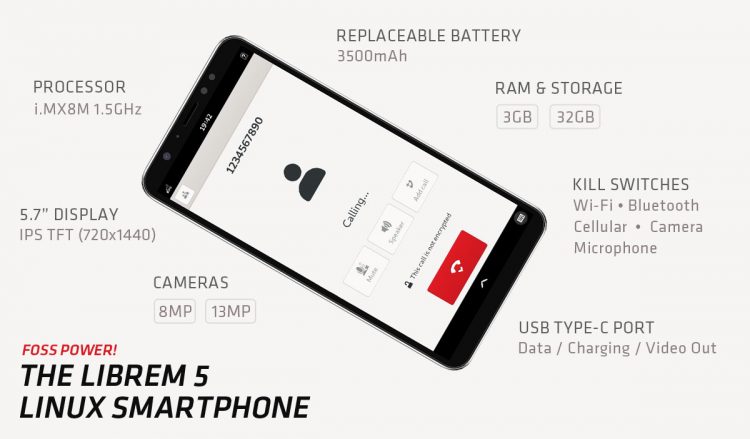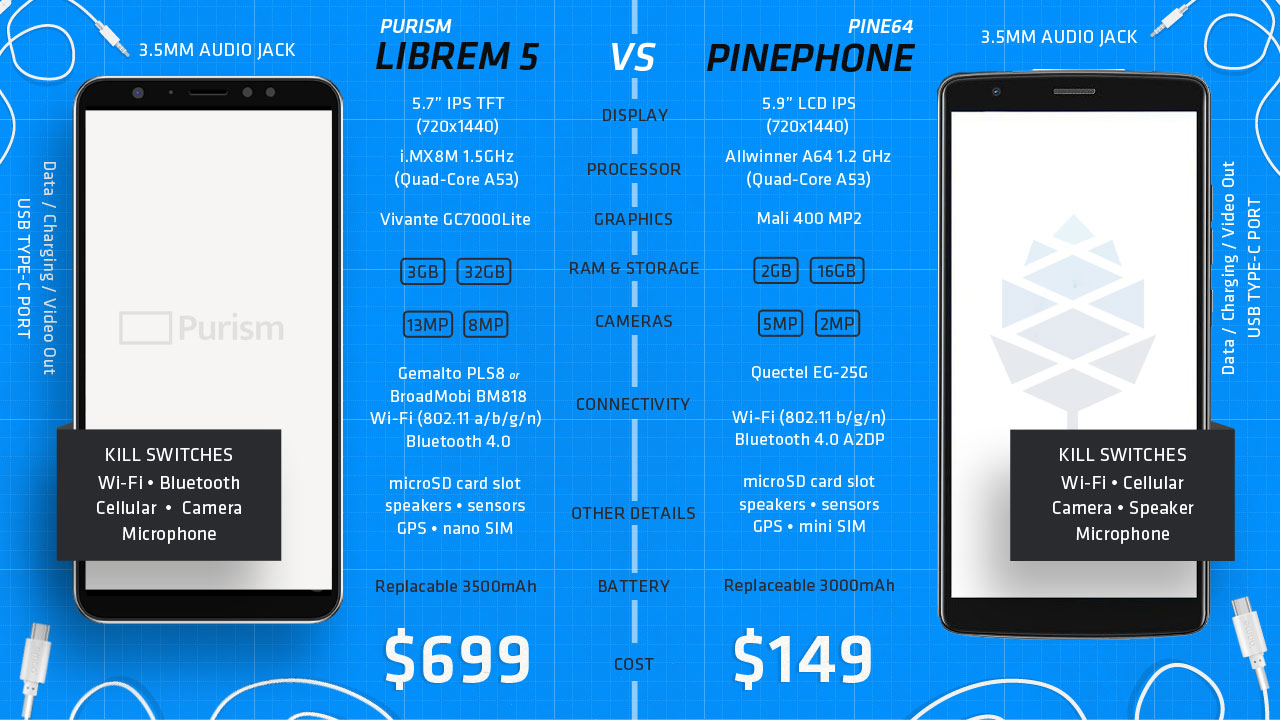If you’ve got your eyes on Purism’s Librem 5 phone, but have worries about the supply chain of parts used to make it, Purism has some very pertinent news.
Same specs, same OS, same phone mostly — just more than twice the price and made in America
The company is launching a new, premium version of its Linux-powered handset called ‘Librem 5 USA’ that costs $1999 — more than double the price of the regular version.
And, for that additional cost you get …Er, well, the exact same Linux phone as the regular Librem 5 buyers: same spec; same OS; same phone (mostly).
The added value comes in the “secure US-based supply chain” used to make it.
Purism chief Todd Weaver says this effort will extend to “… parts procurement, fabrication, testing, assembly, and fulfillment all from within the same facility” which, he adds offers “…the best possible security story.”

Just don’t get confused; this doesn’t mean that all of the components being used in the Librem 5 USA are being made in America.
Indeed, Purism themselves note that the modem chip will still come from Germany, the chassis from China, and the Wi-Fi chip from India.
And, one assumes, the CPU and battery will also come from elsewhere (y’know, given the “made in china” and “korea” labels on them 😉).
But the difference, the one that Purism is clearly banking on people paying a premium for, is the reassurance given by them overseeing complete assembly and integration, from the PCBA to the modem, to the final phone.
Librem 5 USA will ship to backers around the same time as the standard model, which is currently scheduled for Q3 2020.
If the Librem 5 USA sounds like the sort of phone that ticks all your boxes, you can pledge your mean green to it over on the Purism shop:
It’s also worth my reiterating again while the Librem 5 does ship with “proprietary firmware” that firmware runs on hardware modules separated from the mainboard. This ensures that closed-source firmware is only able to send and receive data, not read it from memory.
The $149 PinePhone also does something similar, separating the cellular baseband from the CPU.
There’s a good Twitter thread by Daniel Micay (a security researched and creator of Graphene OS, a system praised by Edward Snowden) on why any claims of “fully open source phone” is a bit of a grey area.

The first hands on impressions of the Librem 5 — which one must remember is still under heavy, active development — are mostly optimistic about the device’s potential.
But, as of now, the Librem 5 is currently unable to make calls or send SMS, and early adopters find that the phone doesn’t last an hour before needing a recharge.
These flaws, particularly in light of the Librem 5 USA announcement, has led to a rather witty, and rather disparaging, meme circulating in Linux-related social media communities.
